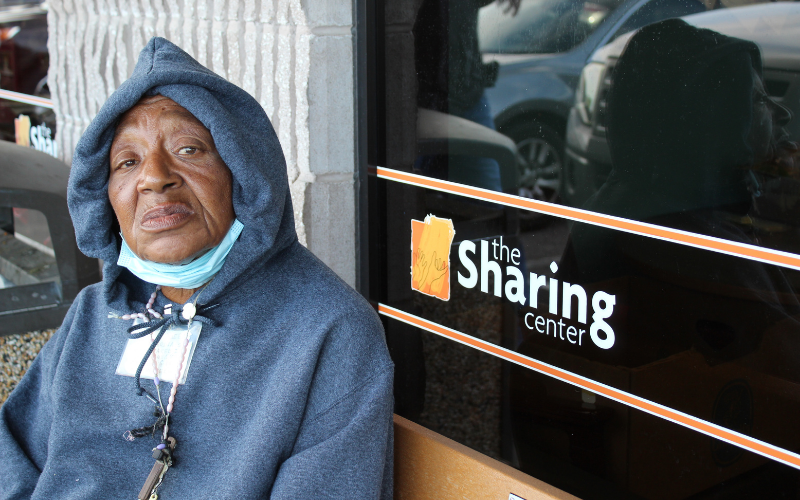
Stigmas of Homelessness: They’re Crazy
How Mental Illness Affects People Experiencing Homelessness
“If you hear their story, you realize they’re not crazy- they’re just walking through a broken story in their life.”
Dan Miller, a counselor from our mental health partner agency, Florida Counseling Foundation, describes his day-to-day experience when counseling people who experience homelessness. “Nothing is ever going to change unless someone intervenes and provides them with the help they need. Making sure people experiencing homelessness have mental health counseling available to them will break the cycle. Battling mental health makes it hard to connect and relate to others. It makes it hard to live a consistent life.”
The Sharing Center has partnered with the Florida Counseling Foundation for the last two years. Our compassionate case managers refer families and individuals to the team of licensed mental health counselors and registered mental health interns who are engaged in the process of growing and maturing in the lives and relationships of others.
According to the Substance Abuse and Mental Health Services Administration, 20 to 25% of the homeless population in the United States suffers from some form of severe mental illness. In comparison, only 6% of Americans are severely mentally ill.
Breaking The Stigma
ProjectRISE, expected to launch in the spring of 2022, will be a wrap-around holistic homelessness solution working to bring those experiencing homelessness, to housing. Each year, six cohorts of 10-12 homeless individuals will utilize short and long-term housing, food assistance, in-depth mental health counseling, and psychiatric care. The program can serve up to 72 individuals or households each year, with a target goal of helping 85% of families maintain housing and financial stability after completing the program.
ProjectRISE Program Manager, Deborah, begins the discussion of how mental illness affects the homeless by stating, “It is a cycle, a lot of them have undiagnosed illnesses. ProjectRISE will work with each person individually to figure out the best practice for their needs. Some will need to go through an emotional intelligence course, others will have to see licensed counselors or receive psychiatric care.”
“Not everyone out there who is homeless has a criminal background, or are on drugs, or are lazy. I’ve met people out there that have a Ph.D., or people that have served this country.” Deborah passionately expressed.
Families and individuals experiencing homelessness may have a hard time setting health care goals when pressing issues like basic needs (food, shelter, transportation) are not met.
Housing Is The Solution To Homelessness
In a study done by Georgetown University on The Stigma Associated with Homelessness and How It Leads to Ineffective Solutions, Housing First model has found that achieving housing stability results in improvements in quality of life, physical and mental health, employment, and substance use. This approach is rooted in the recognition that everyone is inherently “housing-ready.”
Families and individuals who, in the safety and stability of a place they call home, will be enabled to take the necessary steps towards wellness, recovery, employment, and re-engagement with their families and the community at large.
